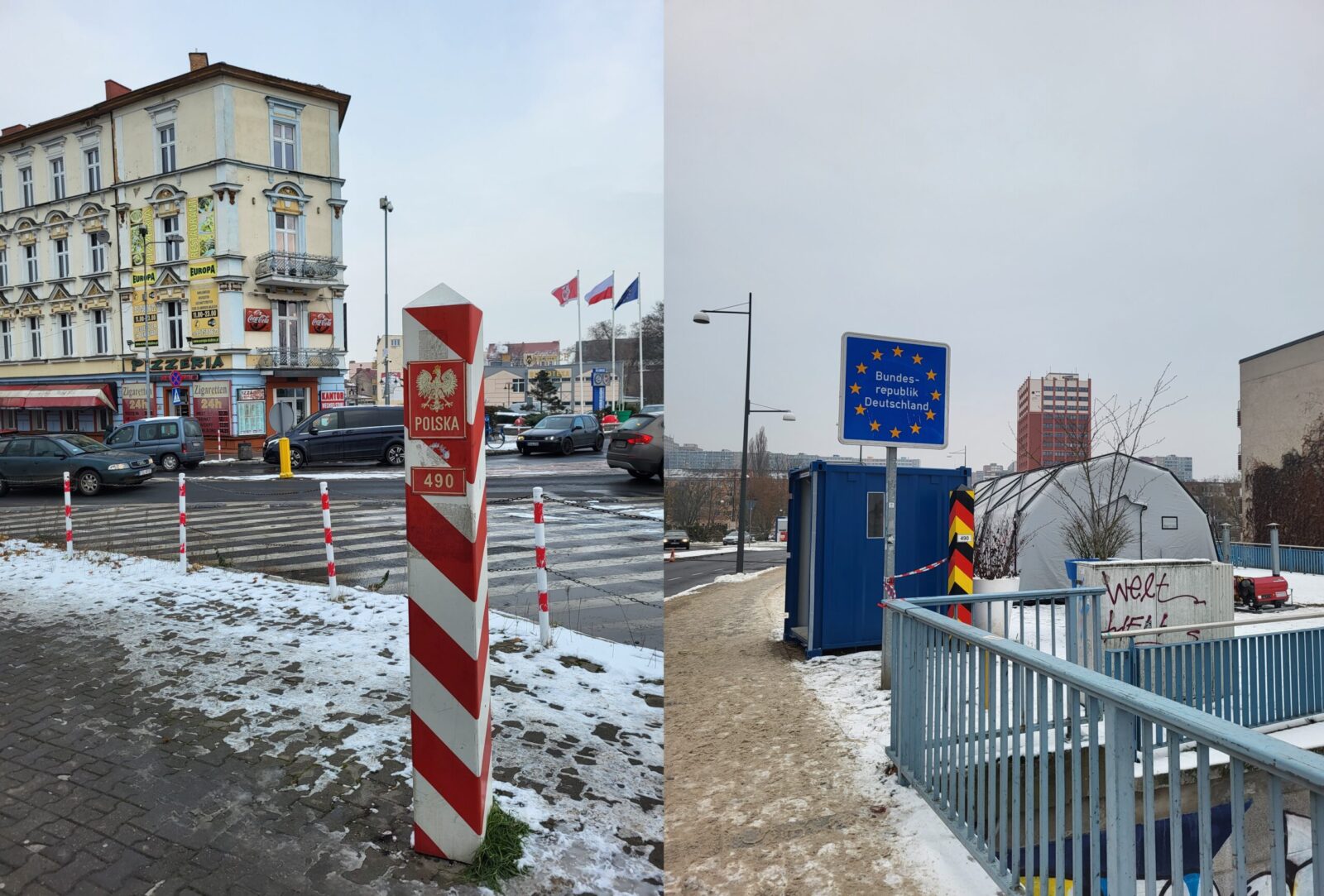Reflecting on New Eastern Europe’s Winter School
Each year New Eastern Europe and the Jan Nowak-Jeziorański College of Eastern Europe bring together young professionals, researchers, and students to the Think Tank School. This week long programme is designed to provide participants with a better understanding of how think tanks work and what it means to work in these spaces.
February 11, 2024 -
Wicke van den Broek
-
New Eastern Europe

Photo: Wicke van den Broek
Why would you go to Poland and Germany in winter? Naturally, you go for the Christmas markets, snow and Central European cuisine. You would definitely not go for the weather and the winter sun on your face. However, I ventured back to Poland this December – having left the region in 2022 after six years of studies and a short-lived career in the European institutions – for what turned out to be a unique experience: the New Eastern Europe Winter School.
I had been to summer schools before. Back in 2016 and 2017, when I started learning Polish it made sense: enjoying the beautiful and sunny cities of Kraków and Poznań while at the same time working my way up from A1 to A2 proficiency over the course of two summers. This time, no sunshine was offered.
As the train from Utrecht was moving its way eastwards through the snowy German countryside, the purpose of this trip was a project about democracy and think tanks. During the introduction about the school in Poznań, the first stop of the trip, we learned that its intention was to discuss democracy and how think tanks work, but also about something more. The organisers of the school, Giorgi (New Eastern Europe) and Laurynas (College of Eastern Europe), told us that we were a part of an experiment that would create a community of interest and purpose. The Winter School has achieved precisely this.
The community that came together in Poznań and Berlin was a special one. One that quickly integrated despite of, or due to its international character. While Central Europe was the focal point of the Winter School and its participants naturally hailed from there, there were participants from Belarus and Russia, the Baltics, South Caucasus and southern Europe. There were people from further afield too, such as Canada, India and Indonesia. I myself come from the Netherlands. What we had in common was not our background, which could not have been more diverse, but our interests and shared purpose. Through the interactions with think tanks, human right campaigners and activists from Central Europe we not only integrated as a group but also connected with those working every day on fostering democracy. As everyone shared their own perspective with the other participants of the program, I got to see the region in ways that I had not seen before.
What bound us together was a common interest in the Central European region and democracy in its widest sense. From the issue of democratic backsliding and how to combat it, to societal questions on how to rally people to a cause and how to reach decision-makers. We discussed the repression of LGBT rights in Poland between 2015 and 2022, but also learned how NGOs and grant organisations such as the German Marshal Fund and the Batory Foundation work every day on projects to make democratic engagement possible. History was also present, exemplified by cross-border academia in Frankfurt an der Oder, where education and research take place in German, Polish and Ukrainian. This European microcosm was paralleled only by the wonderful ‘Land in Between’ of New America (Nowa Ameryka) and its capital Słubfurt, where the status-quo is questioned by challenging borders, encouraging civic activity and through a big dose of humour.
It appeared to me that the purpose of the community present at the Winter School, fuelled by its common interests, was to further democracy and civic engagement in creative and conscientious ways. This could be through student associations and making students aware of their rights and possibilities of studying abroad. It consisted of fact-driven research in think tanks to inform decision-makers and the wider public. It involved advocating human rights of dissidents in repressive regimes and the rights of refugees and migrants alike. Furthermore, we were able to exchange ways on how to combat autocratisation from the local to the national level.
From all the interactions with other participants, experts and organisations present, I learned three lessons. Incidentally, these aligned with the community, interest and purpose of the Winter School. First, democracy is a value in itself that allows people to be themselves in all facets of life. Second, democracy is in the political and security interest not only of Central Europe but the wider region. And finally, while democracy may be fragile, there is a purpose in fighting for it, in whatever way or form. It is these three lessons that I carry with me in these troubled times – to know that there is an active community based on clear values and goals. This is heartening, and the New Eastern Europe Winter School manages to foster to this community.
Wicke van den Broek is currently a PhD candidate at Maastricht University, researching democracy promotion in Belarus. He received his education in the four Visegrad countries at the College of Europe in Natolin, the Jagiellonian University, Masaryk University, the University of Pecs and the Matej Bel university in Banska Bystrica. Before his PhD, Wicke was a trainee at the European Border and Coast Guard Agency in Warsaw.

































